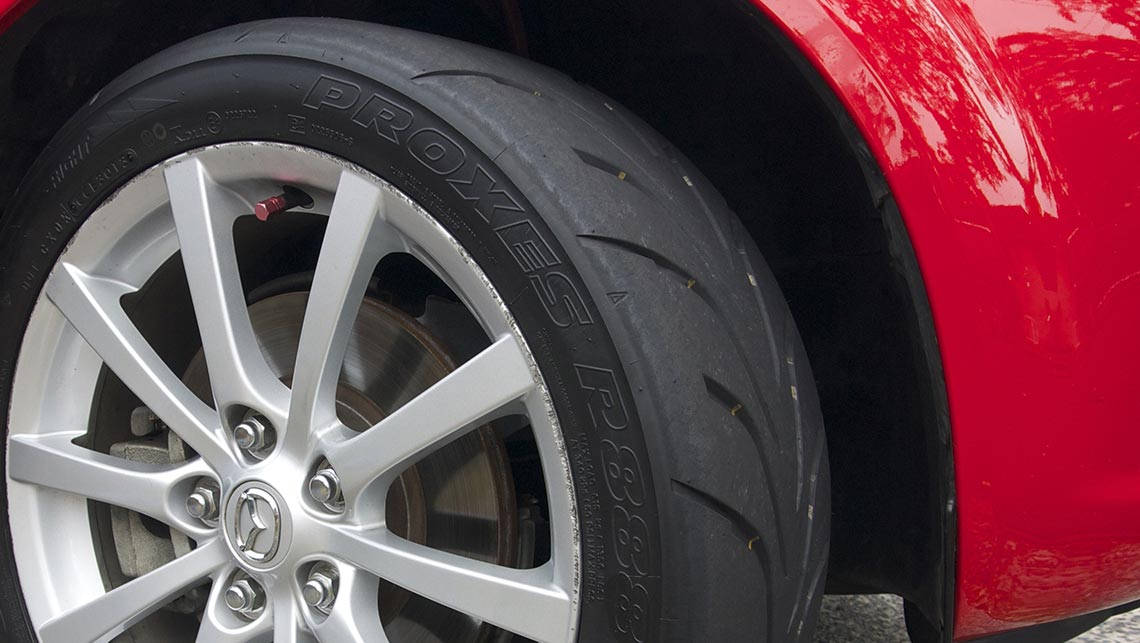Track tires are not street legal due to their design and performance characteristics, which are optimized for track use rather than regular road conditions. However, some track-inspired tires with street-legal capabilities can be used legally on the road.
These tires strike a balance between performance and compliance with street laws, making them suitable for both track and street driving. While track tires offer exceptional grip and handling on smooth surfaces like racetracks, they lack the necessary features for safe and legal operation on public roads, such as adequate tread depth and durability to withstand various weather conditions and prolonged use.
Factors To Consider Before Using Track Tires On The Street
Track tires are generally not street legal due to their specific design and performance characteristics. Tread patterns and grooving on track tires are designed to enhance grip on the racetrack, but they can cause issues on regular roads. The aggressive tread patterns may not provide sufficient traction on wet or icy surfaces, compromising safety.
Moreover, track tires are often made from tire compounds optimized for high-speed performance, resulting in reduced durability and increased wear on normal roads. Additionally, track tires have temperature range limitations, requiring high temperatures to function optimally. In conclusion, while using track tires on the street may seem appealing for performance enthusiasts, it is essential to consider these factors and prioritize safety to ensure a smooth and secure driving experience.
Legal Requirements For Street Tires
Track tires are not typically street legal due to the legal requirements imposed on tires used on public roads. One of these requirements is the minimum tread depth regulations, which ensure adequate traction and safety. In addition, street tires must meet certain safety standards and certifications to ensure their reliability and performance.
These standards include speed and load rating requirements imposed by law to ensure that tires can handle the stresses of everyday driving. It’s important to note that using track tires on the street may result in fines, penalties, and even accidents due to their limited grip and handling capabilities.
Therefore, it’s crucial to use tires that are specifically designed and approved for street use to ensure both legal compliance and safety on the road.
Potential Issues With Using Track Tires On The Street
Using track tires on the street can pose potential issues. Reduced traction on wet or icy surfaces is a major concern. These tires may also generate more noise and compromise ride comfort. Moreover, their specialized design leads to increased wear, resulting in a shorter tire lifespan.
It is important to carefully consider these factors before using track tires on public roads. While they may offer great performance on the track, their suitability for day-to-day street use is questionable. Street legal tires are designed specifically for optimal performance and safety in various road conditions.
Thus, it is recommended to use tires that are explicitly approved for street use to ensure proper traction, comfort, and longevity.

Credit: www.carsguide.com.au
Track Tires Vs. Street Performance Tires
Track tires and street performance tires have notable differences in tread design and pattern. These disparities directly impact handling and cornering capabilities on various road surfaces. When comparing costs, track tires may initially appear more expensive, but they can provide significant savings in the long run.
These tires offer superior grip and durability, resulting in reduced wear and tear, fewer replacements, and improved fuel efficiency. Additionally, the advanced technology utilized in track tires enhances performance, optimizing traction and control during high-speed maneuvers. This ensures a safer driving experience, especially on race tracks or challenging terrains.
Therefore, while track tires may not be street legal for everyday use, they provide unmatched benefits for enthusiasts seeking excellent performance on the road or track.
Tips For Selecting The Right Track Tires For The Street
Track tires are specially designed for racing purposes and may not be street legal in some areas. When selecting track tires for street use, consider your vehicle type and how it will be used. Reviewing tire specifications and ratings can help in making an informed decision.
Seek professional advice on compatibility and safety to ensure the tires are suitable for your vehicle. Keep in mind that using track tires on the street may result in decreased traction and increased road noise. Additionally, track tires generally have a shorter lifespan compared to regular street tires due to their softer compounds.
It’s important to weigh the benefits and drawbacks before choosing track tires for street use. Remember to adhere to local laws and regulations regarding tire requirements for street-legal use.
Legal Implications And Consequences Of Using Track Tires On The Street
Track tires are designed for performance on the race track, but using them on the street can have legal implications. There are potential fines or penalties for non-compliance with regulations, as track tires may not meet the necessary requirements for street use.
Additionally, insurance coverage limitations and exclusions may apply when using track tires on public roads. In the event of an accident, liability considerations may also come into play, as using track tires on the street could be seen as negligent or reckless behavior.
It is important to check local laws and regulations to determine whether track tires are street legal in your area. Failure to comply with the law can result in legal consequences and financial repercussions, so it is crucial to make informed decisions when it comes to choosing the right tires for your vehicle.
Ensuring Safe Usage Of Track Tires On The Street
Track tires are designed for optimal performance on racetracks, but are they street legal? To ensure safe usage of track tires on the street, regular maintenance and inspection are crucial. Checking tread depth and tire pressure regularly can promote better grip and handling.
Adjusting driving habits according to different road conditions is another important aspect. It’s essential to maintain a safe distance from other vehicles and avoid aggressive maneuvers. However, finding the balance between performance and safety is key. While track tires offer superior traction and cornering abilities, they may compromise comfort and durability on regular roads.
Therefore, it’s essential to consider the trade-offs and make an informed decision based on your driving needs and the local regulations. By following these guidelines, you can maximize the benefits of track tires while ensuring street legality and maintaining safety on the road.
Frequently Asked Questions On Are Track Tires Street Legal?
Can I Use Track Tires On The Street?
Yes, track tires are not recommended for street use. It’s essential to prioritize safety and use tires specifically designed for road conditions.
What Is The Difference Between Road And Track Tires?
Road tires are designed for everyday use on paved surfaces, offering comfort and durability. Track tires, on the other hand, are built for high-performance racing on smooth, well-maintained tracks, providing maximum grip and agility.
Why Are Race Tires Illegal?
Race tires are illegal because they are specifically designed for track use, providing superior grip and performance, which can be dangerous on public roads.
Can You Use Drag Tires On The Street?
Drag tires are specifically designed for racing and not suitable for regular street use.
Conclusion
Track tires can offer incredible performance on the race track, but what about their legality on the street? While track tires are specifically designed for racing purposes, they are generally not street legal due to their construction and performance characteristics.
These tires are optimized for maximum grip and handling at high speeds, often sacrificing comfort, noise, and durability for optimal performance on the track. The aggressive tread patterns and softer rubber compounds that allow track tires to excel on the race track may not meet the safety and performance regulations set for street use.
As a result, using track tires on public roads may not only be illegal but also potentially dangerous. It is crucial to check the specific regulations in your area and consult with experts to ensure that you are using tires that meet the necessary legal requirements.
Prioritizing safety and adhering to the law should always be the top priority when considering using track tires on public roads.
- How to Test Ac Compressor Clutch: Mastering the Ultimate AC Diagnosis - May 17, 2024
- How Does Water Infiltrate a Jet Ski Engine? - May 17, 2024
- How to Master Code Reading with Autozone’s Reader: Unlock Your Car’s Secrets - May 17, 2024
